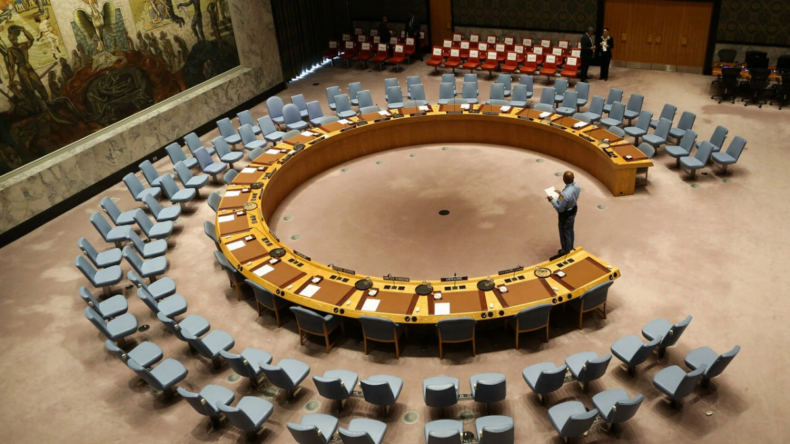Liechtenstein proposed to convene the United Nations General Assembly to consider a draught resolution requiring the Security Council’s five permanent members to justify using the veto.
The United Nations is scheduled to debate a measure that would compel the Security Council’s five permanent members — the United States, the United Kingdom, France, China, and Russia – to explain invoking their veto rights.
The UN Security Council reform has been discussed for years, but it has received new impetus in the aftermath of Russia’s invasion of Ukraine. Current rules of procedure provide that the Security Council’s five permanent members have the authority to veto any resolution proposed by the body. The rotating ten other members, on the other hand, have no such authority.
Since invading Ukraine on February 24, Moscow has used its veto power to limit UNSC activities, instantly rejecting a resolution calling Moscow to withdraw its soldiers from Ukraine.
Moscow has used its veto power to restrict activities in the Security Council, which is intended to intervene in such crises as a guarantee of world peace, as established by the United Nations Charter.
In a statement, US Ambassador to the United Nations Linda Thomas-Greenfield stated, “We are particularly troubled by Russia’s reprehensible practice of misusing its veto right over the past two decades.”
She further said that adopting the Liechtenstein resolution “would be an important step toward accountability, transparency, and responsibility for all” permanent members of the Security Council.
The Liechtenstein plan has the backing of more than 50 nations, including the United States. Still, none of the Security Council’s other four permanent members — Russia, China, France, and the United Kingdom — ought to be the subject of a future vote.
The proposal’s text, acquired by AFP, calls for the General Assembly’s 193 members to convene “within ten working days following the casting of a veto by one or more permanent members of the Security Council, to have a debate on the circumstances as to which the veto was cast.”
295 vetos since 1946

Ukraine, Japan, and Germany are among the co-sponsors who have pledged to vote in favor of the text. Due to their worldwide political and economic clout, the latter two are looking for permanent seats in a possible expanded Security Council.
The positions of India, Brazil, South Africa, and other prospective permanent seat contenders are yet to be announced.
According to one official, France will vote to support the document even if it does not sponsor it.
It is unclear how the United Kingdom, China, and Russia will vote on such a contentious issue.
Since the first use of a veto by the Soviet Union in 1946, Moscow has used it 143 times, considerably outnumbering the United States (86 times), Britain (30 times), China, and France combined (18 times each).
France, which last exercised the veto in 1989, suggested in 2013 that the permanent members limit their use of the veto in the case of a significant tragedy collectively and voluntarily.
The initiative, which was co-sponsored by Mexico and endorsed by 100 countries, has so far stagnated.
Published By: Aman Gupta
Edited By: Vanshika Sahu












